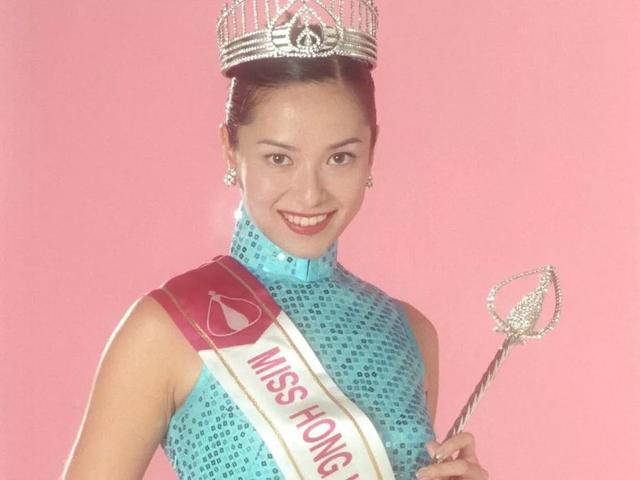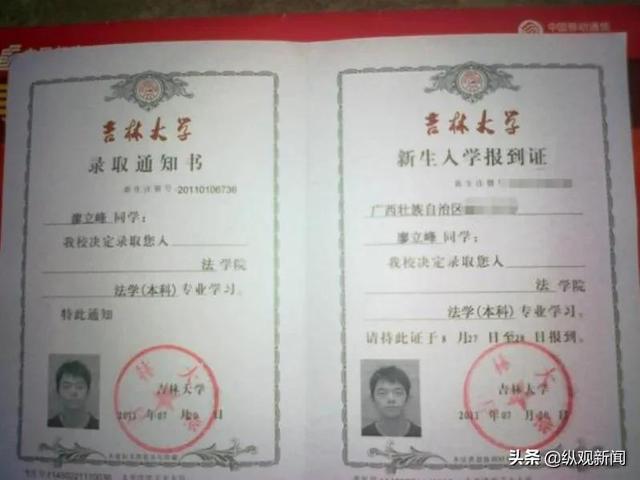
英语情态动词(can,could,will,would,may,should,shall,must等):
- 本身具有一定的词义,表示说话人的情绪和态度,如可能、需要、意愿、肯定或怀疑等。
2.但它们的词义不完整,不能单独做句子的谓语,后需跟(实义)动词原形一起构成复合谓语。
3.情态动词没有人称和数的变化(即情态动词不随主语的人称或单复数而变化)。
4.否定形式是直接在情态动词后加not。如can not; may not; will not 等。
5.一般疑问句是直接把情态动词提到句首。

一、can的用法。
1.表示能力→“ 能、会 ”
We can speak English. → We can not( can't) speak English .
我们会说英语。 我们不会说英语。
Can you dance the disco? →Yes, I can. / No, I can’t.
你会跳舞吗? 是的,我会。不,我不会。
(此时可用be able to代替。Can只有一般现在时和一般过去式;而be able to则有更多的时态.)
We are able to speak English.= We can speak English.我们会说英语。
We were able to speak English at the age of five 我们五岁时就会说英语。
= We could speak English at the age of five. Tom will be able to go traveling abroad.汤姆将会去国外旅行。
2.表示请求或允许→“可以”
Can I borrow your book? →Yes, you can. / No, I’m afraid not.
我可以借用你的书吗? 是的,你可以。 不,恐怕不行。
You can sit down. 你可以坐下。
3.表示客观可能性→“可能、可能会”
I think he can come back soon.我认为他很快会回来。
但在否定句中时,表示一种否定推测“不可能、一定不是”。
He can't be a policeman.他不可能是警察。
My father can't be at home because he is busy working.
我父亲一定不在家,因为他在忙着工作。
4.Could 是can 的过去式,用于过去时态中。
I can swim now 现在我会游泳
but I couldn't swim last Summer.但是去年夏天我不会游泳
She said she could play the piano.她说她会弹钢琴。
但在一般现在时态中can、could 都可表示请求和允许,但could更委婉客气,
但回答时仍然用can。
Could you help me with my English? → Yes./No problem/Sure/All right
你可以帮助我复习英语吗? 可以的/没问题/ 当然/ 好的
Could you please come to my office? →Sorry, I’m afraid not(I can't).
你可以来我办公室吗? 抱歉,我恐怕我不能来
Could I see your driving license?→Of course you can
我可以看你的驾驶证吗? 当然可以
二、may的用法。
might是may的过去式,might可指过去时间,也可指现在时间,指现在时间时,语气更委婉客气。
1、表示请求或允许→ “可以”
You may(might)use my English book.你可以用我的英语书。
May (Might) I smoke in this room? 我可以在这个房间抽烟吗?
→Yes,you may/you can/Sure/Of course.可以/当然可以
→No,you can't/you may not/you mustn't.不可以/不允许
特别的是否定回答,表示“不可以,禁止”意思时,常用must not (mustn’t)。
May I smoke in this room? 我可以在这个房间抽烟吗?
→No, you mustn’t. It is harmful to others’ health.
不,不允许。 吸烟对别人身体有害。
用May I...?征徇对方许可时比较正式和客气,而用Can I...?在口语中更常见。
2、 表推测,属于没把握的推测,可能性很小→ “可能、也许”。
He may( might) be my English teacher.他也许是我的英语老师。
I may(might) go fishing tomorrow.我明天也许去钓鱼。
备注:1)might不是指过去时间,它所表示的可能性比may小。
2)Can/May/Could/Might I.....?表示请求对方许可。其中can语气最不正式could语气比较客气委婉;may/might用于正式场合,语气客气恭维;might比may更为客气。
三、must的用法。
1、表示义务、职责、劝告或主观意识上→“必须,一定”
We must obey the traffic rules.我们必须遵守交通规则。
Everyone must have healthy eating habits。每个人一定要有健康的饮食习惯。
You must get to school on time. 你必须要准时到校。
Must she get there at 6 o'clock? 她必须六点到那吗?
(1)must的否定形式must not(mustn't) 表示“禁止、不允许、不可以”,语气强,多为法律、规章等所禁止。
You must not break the law in our country.在我们国家,禁止违反法律。
You must not park the car here.这里禁止停车。
(2)Must开头问句的回答:
否定回答不能用mustn’t,而用needn’t, don’t have to(不必要).
Must I get there at 6 o'clock? 我必须六点到那吗?
→Yes, you must.是的,必须。
→No,you needn’t 或者No, you don’t have to.不,不必要。
2、表示推测,属于有把握、肯定的推测,“准是、肯定、一定”,只用于肯定句中。
(1)must 动词原形 → “准是/肯定........”,表示对现在情况的推测。
She must be our new English teacher.她准是我们的新来的英语老师。
There must be something wrong with my computer because it doesn't work.
我的电脑准是有问题,因为没法运行了。
(2)must have done(动词过去分词)
→“准是/肯定已经做了某事”,表示对过去发生事情的肯定推测。
There is nobody here-------they must have gone home.
这儿没人 --------他们准是已经回家了。
若是否定推测,则用can not (can't),“不可能、一定不是”
He can't be a policeman.他不可能是警察。
My father can't be at home because he is busy working.
我父亲一定不在家,因为他在忙着工作。
3、must 与 have to(has to) 的区别
( 1)must通常表示由于责任、义务等主观原因而“必须”要做某事:
We must obey the traffic rules.我们必须遵守交通规则。
We all must take good care of our elder parents.
我们都必须照顾好我们年迈的父母。
(2)have to 表示由于客观原因而“不得不、必须”做某事,有迫不得已之
意,可用于多种时态:
My parents aren't in,
I have to stay at home to look after my young sister.
父母不在家,我不得不在家照顾妹妹。
She had to go to school by bus yesterday because her bike was broken.
昨天自行车坏了,她不得不乘公交上学。
四、shall 的用法。
有“将会、将要”的意思,可用于表将来,主语常常是第一人称。
We shall read some more books.我们要再买些书。
但主要用于第一人称的疑问句中,表示征求对方意愿,
When shall we meet? 我们什么时候见面?
Shall we go to visit our teacher? 我们去拜访老师好吗?
五、should 的用法。
1、 表示义务、建议、劝告→“应该、应当”做某事,
We should listen to the teacher carefully in class.课堂上我们应该认真听讲。
It is cold outside, so you should put on the warm coat.
外面很冷,你应当穿上保暖外套。
We should not(shouldn't) laugh at the disabled people.
我们不应该嘲笑残疾人。
六、will的用法。 → would 是will的过去式。
1、will用于表一般将来时,有“将会、将要.”之意。
I am sure I will(I’ll)do better next time. 我确信下次我将会做得更好。
We will(We’ll)take some sports clothes and sports shoes tomorrow.
明天我们将会携带些运动服和运动鞋。
We will not (won't)help him if he asks us.如果他问我们,我们不会帮助他。
2、will表示意愿 或征询意见,有“愿意.”之意,常用于疑问句中,但would用于现在时间,比will语气更委婉、客气。
Will you go to the party with me? Will you mail the letter for me,please?
你愿意和我去参加宴会吗? 你愿意给我寄封信吗?
Would you please give me a hand ?你愿意帮忙吗?
Would you like some more milk?→Yes, please →No, thanks.
你想要再来点牛奶吗?
What would you like to have for breakfast?你早餐想要吃点什么?
→I would('d)like to have some milk and bread for breakfast.
Would you like to go shopping with me? 你想和我去购物吗?
→Yes/I’d like to./Sure, I'd love to / I’d like to/ Good idea
/ Sorry,I’m afraid not
Would you mind passing me some water? 你介意递给我些水吗?
→No,of course not/Certainly not/Not at all
→Sorry,but.../I’m afraid not(I can't)
3.would 用于过去将来时态,表示从过去某一时刻看以后要发生的动作或状态。
At that time they said that they would help me.当时他们说他们会帮助我。
He told her that he would meet her at the coffee shop after work.
他告诉她,她将会在下班后在咖啡店见她。
七、need的用法。→有“需要”之意。
1、need作情态动词,表示必要性, 多用于否定句和疑问句中。
You need not( needn't) come back home.你不需要回家。
Need I say it once again? →Yes, you must →No,you needn't.
2、need做实义动词时,后可接名词、代词或带to的不定式做宾语:
→ need sth.需要某事/某物 ; need to do sth.需要做某事。
We need many friends. → We don’t need many friends.
→Do you need many friends?→Yes,we do.→No,we don't.
She needs to go to school on foot.她需要步行去上学。
→Does she need to go to school on foot?
→Yes,she does.→No,she doesn't.
八、dare的用法。 →有“敢”之意。
1、dare作情态动词 ,多用于否定句和疑问句中。
I dare not speak English in public.我不敢在公众场合说英语。
Dare you speak English in public? Yes,I dare;No, I dare not
How dare you speak to me like that. 你怎么敢这样对我说话。
2、做实义动词时,后可接名词、代词或不定式做宾语
dare (to) do sth. 敢做某事
She dares to go out alone at night.晚上她敢独自一人出去。
Tom dared to come to school late yesterday. 汤姆昨天竟敢上学迟到。
I don't dare to speak English in public. 我不敢在公众场合说英语。
Do you dare to speak English in public? Yes,I do;No, I don’t
练习。
1.You _______ eat too much candy. It’s bad for your teeth.
A.must B.can C.should D.shouldn’t
2.If you have a headache, you _______ lie down for a good rest.
A.shouldn’t B.had better not C.had better D.mustn’t
3.—I can’t keep myself active during the day.
—You _______ take more exercise.
A.must not B.must be C.need to D.may be
4. You _______ walk across the road. It’s dangerous.
A.may not B.don’t have to C.must not D.needn’t
5.—May I ask you some questions, Dr. Wang?
—_______
A.You’re welcome B.Sure, go ahead. C.No, I’m busy. D.Yes, you must.
6.—Must I take part in the activity?
—No, you _______. You’re too young. You should look after yourself.
A.mustn’t B.don’t C.can’t D.don’t have to
7.—Must I take the medicine every day?—No, you _______.
A.must B.mustn’t C.needn’t D.can’t
8.My mother is ill. I _______ stay at home to take care of her.
A.can B.may C.should D.maybe
9.—May I use your dictionary, Lily?—Sure, _______.
A.go ahead B.you can ask Bill C.you can’t D.that’s all right
10.You’d better _______ too much meat. You are much too fat.
A.not eat B.eat C.not to eat D.don’t eat
11.You _______ wash your hands before meals. It is good for your health.
A.may B.can C.have to D.must
12.Don’t sleep all day. You should _______ to keep fit.
A.not eat B.to run C.do many exercise D.do morning exercises
13.—Would you please _______ so much noise?
—Oh, sorry, I won’t.
A. not make B.don’t make C. not to make D.making
14.—Must I park my car behind the building?
—No, you _______. You _______ park it there.
A.mustn’t; may B.may not; must
C.don’t have to; may D.shouldn’t; must
15.We _______ play on this road. There is too much traffic.
A.must B.mustn’t C.need D.needn’t
16.Everyone _____ the traffic _____.
A.should listen; rules B.will do; rules
C.must obey; rules D.must obeys; rule
17.—Do I need _____ a bus?
—Yes, No.3 bus will take you there.
A.taking B.to take C.takes D.to taking
18.— _____ Alice perform ballet two years ago?
—No, she _____ . But now she _____ .
A.Can; can’t; could B.Could; can; can
C.Could; couldn’t; could D.Could; couldn’t; can
19.—Can Bill _____ the party?
—Of course, he can.
A.comes B.come C.comes to D.come to
20.—Could you ride a bike when you were 5 years old?
—_____
A.Yes, I could. B.Yes, I couldn’t. C.Yes, I can. D.No, I can’t.
21.----May I swim in this river?
-----No,you____ .It is dangerous.
A. won't. B. needn't. C. mustn't. D. may not.
22.----You see,a man is cutting a tree on the moon.
----It _____ be true. The teacher says there is no air on the moon.
A. can't. B. shouldn't. C. mustn't. D. may not.
23.----Look!The man at the gate_____be our headmaster.He is always standing there every morning.
-----No,it____be him.He is holding a meeting in the office now.
A. must;can't. B. must;mustn't.
C. can't;can't. D. can't; mustn't.
24.SARS is a serious disease,but we_____ be afraid of it.
A. must B. may C. had better D. don't need to
25.----You ____smoke in the meeting room.
-----I'm sorry.
A. had better not B. didn't had better
C. don't had better D. hadn't better
26.Will you finish your work before nine o'clock this evening?
A. can B. may C. are able to D. be able to
27.-----Whose notebook is this?
------It___Jane's.It has her name on it.
A. must be B. may be. C. could be. D. might belong to.
28.----- _____I borrow these magazines?
-----Sorry,only the magazines over there can be borrowed.
A. Must B. May C. Would D. Need .
29.----Where is Mum now?
-----I'm not sure.She____be in the kitchen.
A. shall. B. may . C. must. D. need.






